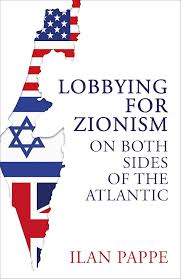A Comprehensive Look at Zionism and Its Impact

Introduction
Zionism is a nationalist movement that emerged in the late 19th century with the goal of establishing a Jewish homeland in Palestine. The importance of understanding Zionism today is underscored by the ongoing Israeli-Palestinian conflict, which remains a pivotal issue in international relations. By examining its origins, evolution, and effect on contemporary society, we can better appreciate the complexities surrounding this deeply entrenched ideology.
The Origins of Zionism
The movement began in the 1890s, spearheaded by figures like Theodor Herzl, largely in response to widespread anti-Semitism in Europe. Herzl convened the First Zionist Congress in 1897, aimed at creating a political framework for Jewish migration to Palestine. The movement gained momentum through various waves of Jewish immigration, known as Aliyah, particularly during the early 20th century.
Zionism’s Evolution
Over the decades, Zionism has diversified into multiple strands, including political, cultural, and religious forms. Political Zionism focuses on the establishment and maintenance of Israel as a Jewish state. In contrast, cultural Zionism emphasises the revival of Jewish culture and language, particularly Hebrew. Religious Zionism intertwines with faith, viewing the return to the land of Israel as a divine mandate.
The Impact of Zionism
The establishment of the State of Israel in 1948 marked a significant achievement for the Zionist movement but also led to profound consequences for the Palestinian populace, leading to displacement and ongoing conflict. The varying perspectives on Zionism contribute to a deeply divided understanding within both Jewish and Arab communities.
Numerous conflicts and peace efforts have ensued, with debates surrounding the legitimacy of Zionism continuing to spark heated discussions globally. In recent years, events such as the Abraham Accords have illustrated the evolving dynamics in the region, hint at changing alliances, yet Zionism’s role remains contentious.
Conclusion
Zionism remains a critical factor in understanding the Israeli-Palestinian conflict and broader Middle Eastern politics. It is essential for readers to acknowledge the diverse interpretations of Zionism, its historical significance, and its implications for both Israeli and Palestinian identities. As the conflict persists, the discussions surrounding Zionism will continue to shape future policy, dialogue, and diplomacy in the region.







